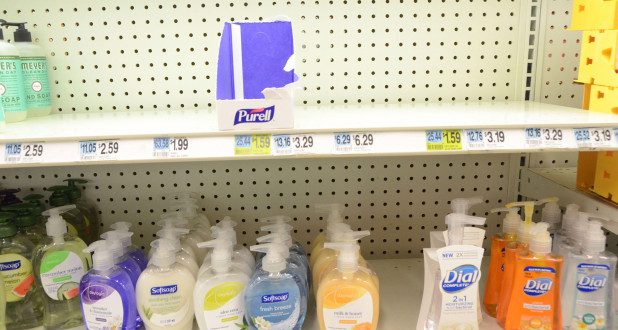Call it the Purell panic.
People are hoarding gel-based hand sanitizers to ward off coronavirus, so some enterprising home chemists are making their own germ killers with some not-so-magic ingredients and simple how-to guides.
A self-proclaimed Forbes “lifehack contributor,” TJ McCue, read the ingredients on his own empty bottle of hand sanitizer and made a gel refill himself, using simple ingredients like aloe vera gel and isopropyl alcohol (rubbing alcohol).
“The ratio is roughly two-thirds cup of rubbing alcohol and one-third cup aloe vera gel, but many of the gels are already made with 60 percent alcohol solutions in them, so I’d start with less than two-thirds of a cup of alcohol in my mix,” writes McCue.
Adv.
- Sun Winning Ind Co: Manufacture of Canvas Bag, Recycle Bad in China
- TheUniTravel.com : Find the latest travel and tourism news from around the world. Stay informed with travel news and updates
During normal times, he’d try some sweet-smelling and gentle homemade remedies with essential oils from sites such as Mom.com, but the Centers for Disease Control and Prevention (CDC) recommends meeting or exceeding 60 percent alcohol in hand-sanitizing solutions.
However, the CDC says the ultimate cleaner is soap and water. The public health institute recommends “washing hands with soap and water whenever possible because handwashing reduces the amounts of all types of germs and chemicals on hands.”
Popular sanitizer brands have all but sold out on websites like Amazon, and a Rite Aid store in Brooklyn was completely cleared of hand sanitizers this week.
“Ultimately, I don’t think the panic of sanitizers is warranted,” Dr. David Dowdy, an associate professor of infectious disease and epidemiology at Johns Hopkins University’s Bloomberg School of Public Health, tells The Post, adding that he uses hand sanitizers when seeing patients.
“This is less because the sanitizers are unlikely to be effective against the coronavirus — they probably are effective, though they haven’t been proven and don’t offer long-lasting protection — more because the current risk of infection by the coronavirus in the USA is exceedingly small.”
The global market for hand sanitizers, which pulled in $2.4 billion dollars in 2017, is predicted to reach $5.5 billion by 2024, according to Marketwatch.
At Brooklyn’s Café Regular in Park Slope, the debate raged. “Hand sanitizers may help, but I’m not sure,” says Dr. Arthur Kaplowitz. “I would have to see the studies. Touching your eyes and nose is certainly self-inoculation.” Still, whether or not he’s certain about them working, he says he does carry a small bottle of CVS-branded sanitizer in his pocket.
Marty Goldensohn, a producer and former news director at WNYC, listens to the advice of his daughter, also a doctor. “She advises singing ‘Happy Birthday’ twice while washing with soapy water,” he says. “That’s about 30 seconds if you don’t sing too fast.”
 TheFastFashion.com Fashion, Life Style, Beauty, Makeup, Costume…
TheFastFashion.com Fashion, Life Style, Beauty, Makeup, Costume…











